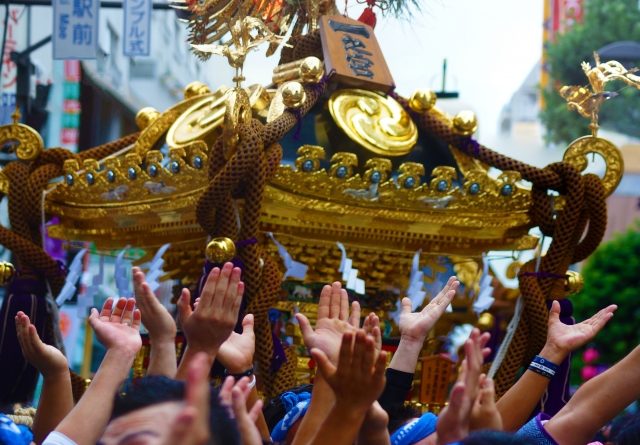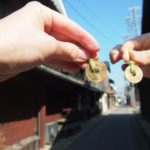Wasshoi (わっしょい)
Wasshoi
わっしょい
Summer has come, and festivals began to be held in various places.
本格的な夏が到来し、各地で祭りが催され始めました。
In summer festivals in Japan, portable shrines called mikosi (神輿) are often carried by dozens of people as a part of the events.
日本の夏祭りでは、数人~数十人で神輿を担いで街を渡御する行事がよく行われます。
Since mikoshi is heavy, people have to call out to adjust the timing of putting muscle.
神輿は重たいので、声を掛け合い息を合わせて運ばなければいけません。
The most common phrase when carrying mikoshi is wasshoi (わっしょい).
このときの掛け声として最も一般的なものは、「わっしょい」です。
There are several theories about the etymology of wasshoi.
「わっしょい」の語源には幾つかの説があります。
One of the most acceptable theories says that wa (わ) and shoi (しょい) comes from heiwa (平和 – “peace”) and seou (背負う – “to carry something piggyback”).
一つの有力な説は、「わ」は「平和」、「しょい」は「背負う/背負え」から来ているというものです。




